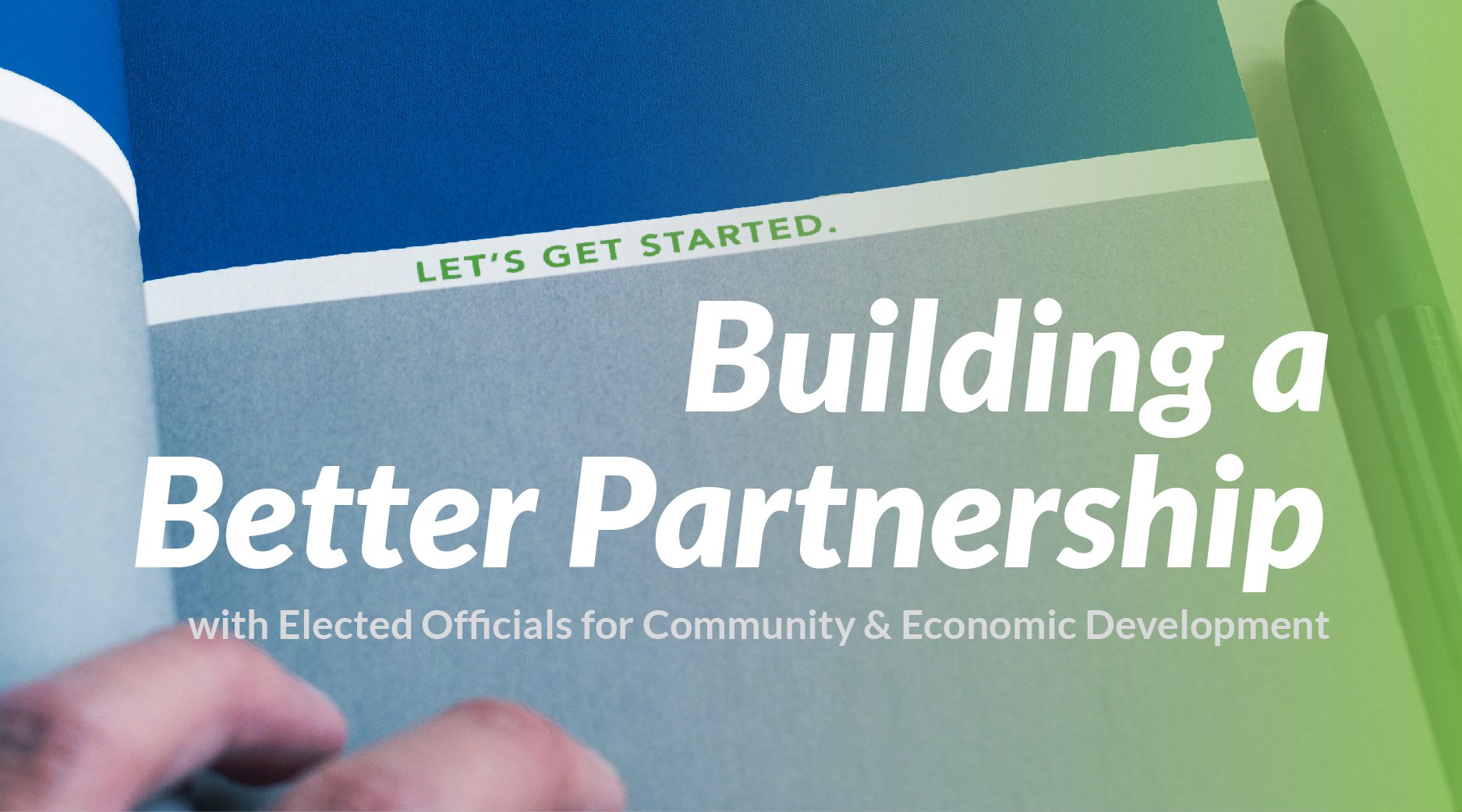A good working relationship between elected officials and economic development professionals, board members and volunteers is a key factor for community development success. Smart economic developers gain the trust of local leaders and help them learn how to practice good community and economic development. However, this is a two-way street – smart leaders in turn seek to learn more about community development.
How should elected officials approach the important task of community and economic development?
What are some “dos” and “don’ts” especially for those just coming into office?
Prosperous Places sought some advice on this from a successful businessman who ran for elected office later in life. Bob Fink just finished his first and only term as one of five Commissioners in Rabun County with a population of 17,000 in rural northeast Georgia. Like many Appalachian Mountain communities in North Georgia and Western North Carolina, Rabun County is heavily dependent on tourism, especially after losing many of its traditional manufacturing industries such as textiles. The County is now working to build a new manufacturing and service industry base to strengthen and diversify its economy.
With a strong track record as a successful entrepreneur, Bob entered office with a good knowledge of economic development, but learned a lot about the subject from the public officials’ perspective while in office. Here is some advice for elected officials and community and economic development professionals alike that Bob shared:

- Some form of training in community and economic development for elected officials is vital. Many states offer or require training for newly elected public officials, and there should be more of it. However, programs that feature speakers that are there to sell services are often not beneficial to elected officials.
- Don’t “preach” to elected officials about how to do community and economic development. Bring them along slowly and let them learn, and, of course, give them due credit for successes in community and economic development.
- Don’t prejudge people. Keep an open mind concerning who can help with community and economic development and governing in general.
- Know your community. Be familiar with your community’s demographic and economic situation, recent trends and future prospects. Have suggestions for community and economic development, but make sure you have data to support them. Community and economic developers should help keep elected officials informed on the community’s economic and social status and recent trends.
- You may build a better mousetrap but you must also market it. Elected officials must understand what good community and economic developers know: a community must be a good place to do business and live, but you have to get the word out through target marketing. In today’s knowledge-driven economy, this is important for attracting business as well as educated and skilled workers.
- Public/private community and economic development partnerships can be very advantageous. They help ensure that the concerns of local businesses are addressed (therefore helping with retention and expansion) and they help provide continuity to economic development plans and efforts.
- Sell economic development efforts as an investment, not a sunk cost. The purpose of the community and economic programs is not to “raid the treasury” but to provide more jobs, tax revenues and many other benefits for the community.
- Elected officials, especially those just entering office, should not start advocating instant approaches or solutions to local issues. Instead, they should study and define a problem first. Community and economic development recommendations should be carefully thought out and based on analysis and data.
- Strategic planning for community and economic development can help with budgeting. A vision for the future with goals and action steps can help prioritize competing budget items. How much will a proposed expenditure contribute to the overall vision and goals for community and economic development?
As a Commissioner and member of the Development Authority Board, Bob Fink has helped shape the economic future of Rabun County. At 86 years old, he is still very involved in business and community activities which will positively impact Rabun County in the years to come.

- From the economic developers’ perspective, what advice do you have on helping elected officials and other community leaders better understand community and economic development? How has your community fared in this regard?
- From the elected officials and community leaders’ perspective, what information or assistance would help make you better understand and support community and economic development?
We look forward to your input. Have some thoughts to the questions and content above? Feel free to post them in the comments below.
About Bob Fink
“I left home at an early age and saw the world” is how Bob Fink summarizes his life. After serving as a paratrooper in the Korean War, Bob briefly attended Georgia Tech. After a disjointed education working and being married with four children, Bob received a law degree from Atlanta Law School. He then founded successful companies making products for the recording industry including cassette decks. He later expanded into the metal embossing business on an international scale. In 1998, he and wife Gwen settled on Lake Burton in Rabun County, Georgia where both remain very active in community activities.
![2021 Prosperous Places Logo [TM]](https://www.prosperousplaces.org/wp-content/uploads/2021/02/20210205_JI_PPTM-Logo.png)



